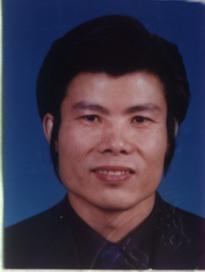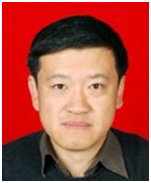
Nanotechnology Center of Energy Resources
Introduction
Nanotechnology Center of Energy Resources (NTCER), China University of Petroleum (Beijing) has been established in 2011. NTCER has its aims at stimulating the nanomaterials or nanocomposite materials applicable for both traditional and novel energy. Thus, NTCER performs its mission by undertaking the diverse projects including “National Major Projects”, “Natural Science Foundation, China”, and “National 863 Program”, and PetroChina and Sinopec.
In NTCER, the team members are mainly composed of 3-5 professors, and those students for doctor and master degree. NTCER is mainly engaged in investigating nano-micron materials, polymer materials and their diverse nanocomposite materials.
The founder, professor Dr. Ke Yangchuan, has engaged in the study of nanocomposite materials for nearly 20 years.
In recent years,the members of NTCER has published more than 200 papers cited by SCI more than 3000 times, published 10 monographs, and authorized or applied for more than 50 patents. NTCER has been awarded with several prizes including 2 second class prizes of the national scientific and technological progress award, and 12 First and Second Class Prizes of Ministry Scientific and Technological Award.
Scientific Research Fields
1. Nano materials synthesis, and production technology
Layered silicate primary material has production more than 150,000 tons, results have been identified by China Petroleum and Chemical industry Association.
2. Nanocomposite Emulsion Technology
Preparation of high temperature tolerant emulsion, large scale production.
3. Nanocomposite for water injection technology
Nanomaterials and nanocomposite materials applicable for water injection, specially in low permeability oilfield, improving injection efficiency.
4. Nano-micron composite additives for well drilling and completion fluids
Preparations of chemical additives including nano-micronmeter composite materials for well drilling and well completion engineering.
5. In-situ polymerization of nano-micron composite gel technology
Preparations of nano-micron composite gels, and their application principles to oil and gas reservoir for plugging and deep profile control.
Domestic and Foreign Technical Advantages
NTCER has the domestic and foreign technical advantages as follows.
1.Nano-Micron intermediates, and its controllable dispersion technology
Based on the layered structure of raw materials, the nano-micron intermedias have turned to a leading technology in the series of derived nano-composites and there was no similar report in the study.
2.Nanocomposite agents and multi-functional high-temperature tolerant working fluids
NTCER creates the high-temperature tolerant polymer composites of nano-micron intermediates. Its temperature tolerance has reached 430℃, a new record in oil and gas engineering agents. The optimized polymer matrix can further regulate the high temperature tolerance in oil and gas treatment agents.
3.Nano-micron pore models, and nanocomposites application design on them
Designing nano-micron pore models of oil and gas formation is to making protect formation permeability through ways to form the functional nano-structure.
International cooperation and exchanges
It has established long-term cooperation with University of California at Davis, America Stanford University, Holland Higher college, and China University of Hong Kong.
Members profile
Professor Yangchuan Ke

Research
Petroleum and natural gas engineering materials, Nanocomposite materials, High polymer materials.
Specialized in nanocomposite materials and its engineering application technology of petroleum and natural gas, one of the founders of intercalation nanocomposite materials field in China, taking the leading in establishing theoretical model of nano and microscale pores in reservoir, widespreadly for well drilling, well completion, hydraulically fracturing, water injection and displacement of reservoir oil.
Progamme supervised for
1. Master
(1)chemistry
(2) chemical engineering and technology
(3) chemical engineering
(4) petroleum and natural gas chemistry
(5) new material and petroleum engineering
(6) biology and environmental chemical engineering
(7) new energy resources field
2. Doctor
(1)chemical engineering and technology
(2)petroleum and natural gas chemistry
(3)oilfield chemistry
(4)materials chemistry
(5)biology and environmental chemical engineering
(6) new energy resources field
(7) colloid and interface chemistry
Zhou qian, Doctor

Zhou qian, Doctor, Associate Professor
Research Direction
Monodisperse microspheres prepared and modified, new nano-materials prepare and study.
Gao Manglai, Professor

Gao Manglai, Professor, doctoral
Research Direction
Colloid and Interface Chemistry, Material chemistry
Sun Qianyao, Professor

Research Direction
Porous materials, micro engineering cement composite material and membrane separation technology



